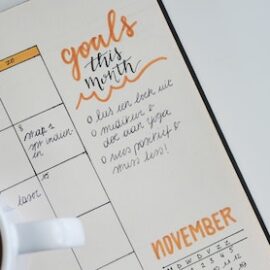

This article is an excerpt from the Shortform book guide to "Thinking in Bets" by Annie Duke. Shortform has the world's best summaries and analyses of books you should be reading.
Like this article? Sign up for a free trial here .
Can you train yourself to embrace uncertainty about your beliefs? How could it make you a better believer?
The idea of embracing uncertainty about what you believe can sound scary and even unwise. However, uncertainty can actually make you a better believer. You can learn strategies to leverage uncertainty and cultivate a healthier relationship with your beliefs.
Read more to learn how and why to embrace uncertainty.
Embracing Uncertainty Can Make You a Better Believer
It’s easy to become defensive when our beliefs are challenged—even minor beliefs—because we don’t like to feel like we’re wrong. That’s why hearing that a belief we hold is incorrect can feel like a personal attack. But there are strategies you can use to embrace uncertainty—getting into the habit of vetting your own beliefs and being intellectually flexible.
1. Imagine you had to place a bet on every belief you hold. If being wrong about something suddenly came with an immediate financial penalty, you’d be a lot more likely to examine that belief, second-guess yourself, and do some fact-checking. The reality is that you won’t have to pay for most of the misconceptions you might hold in cold, hard cash, but many beliefs do carry a penalty when they influence your choices: the alternative futures you might have had if you’d made a different decision.
2. Acknowledge that there’s likely some uncertainty in most beliefs you hold. The more you scrutinize your beliefs, the more you’ll start to realize there aren’t many things you feel confident enough about to bet money on, and that’s okay. Even scientific concepts are constantly being updated or disproven. You don’t have to be completely sure of every belief you hold, but it’s good to think about how sure you are. There can be a range of certainty, differing levels of confidence, for every belief you hold.
There are six concrete benefits to embracing uncertainty in regard to your beliefs.
- It makes you less likely to fall prey to motivated reasoning: believing or disbelieving new information based on existing biases.
- Embracing uncertainty helps you become more open-minded.
- You’re less likely to become defensive if you receive information that casts doubt on an existing belief.
- It becomes easier to change your mind when you’re moving between levels of uncertainty rather than going from “right” to “wrong” (switching between two extremes).
- If you openly acknowledge your uncertainty about a topic when discussing it with others, you make yourself sound more objective and therefore more trustworthy—someone who allows for the possibility that they don’t have all the answers is more likely to care about the truth than someone who speaks in absolutes.
- When you embrace uncertainty, your listeners will then be less likely to become wrongly indoctrinated with a false belief that you’ve unknowingly expressed, because by acknowledging your uncertainty, you trigger the belief-vetting process in others, too.
Ultimately, this attitude toward uncertainty in what you believe can get you closer to truth.

———End of Preview———
Like what you just read? Read the rest of the world's best book summary and analysis of Annie Duke's "Thinking in Bets" at Shortform .
Here's what you'll find in our full Thinking in Bets summary :
- How to get better at making good decisions
- How to work around your biases
- How to evaluate and learn from your past






